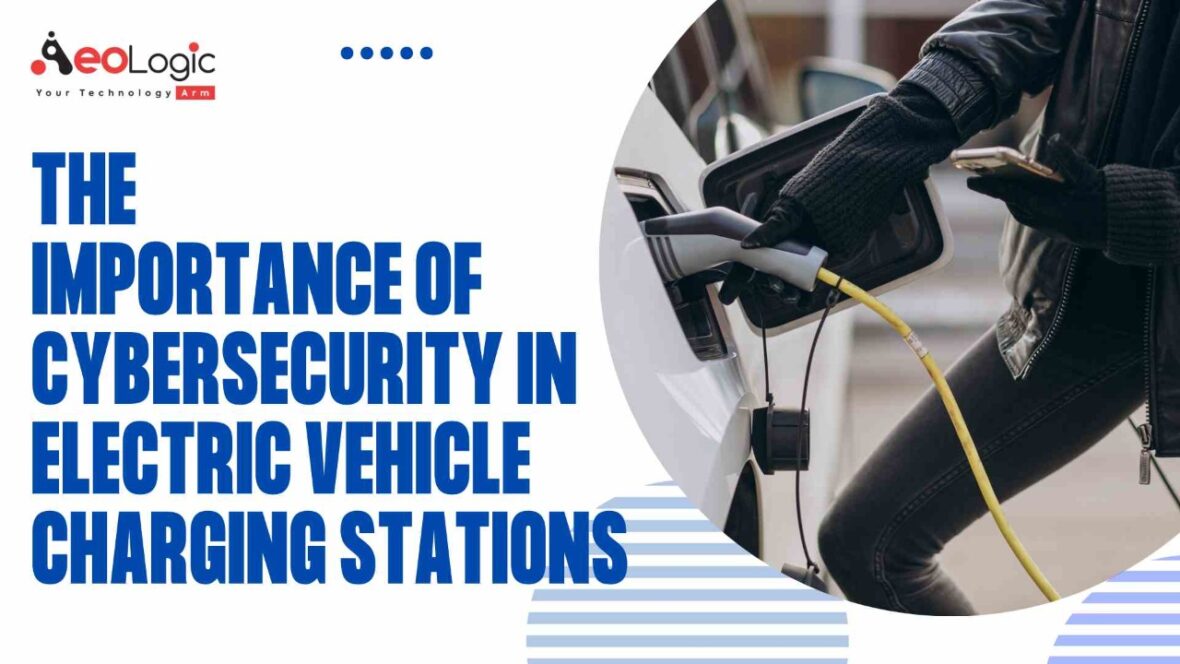This article talks about the importance of cyber security in electric vehicle charging stations. The importance of Cyber security in electric vehicle charging infrastructure is a very important aspect. Simultaneously, the probable impact that would have on a local distribution network. For example, consider having a large number of devices either attempting to charge or disconnect from the grid at any one time. Meanwhile, society is getting so used to using devices with connections to the internet for so many daily routines. Hence, electric vehicle (EV) charging infrastructure is as vulnerable to suffer cyber threats as any other connected device. Therefore, it is important, that the EV sector tackle and highlight the issue of cyber security wherever possible.
Even if our Electric Vehicle has security protocols and safe algorithms implemented, as well as safety measures. There are times when there might be security breaches within the electric vehicle charging stations ecosystem. And that could endanger our privacy. As well as our safety and even the entire electric grid infrastructure. From the charging point, the station itself, to the charge point operators (CPO) who provide the charging network infrastructure, and the distribution system operators (DSO) that are the functioning managers of energy distribution networks.
Applying cybersecurity measures in each of them is essential to creating a trusted environment where users can experience faultless and secure charging.
The importance of Cyber Security in Electric Vehicle charging stations should be particularly focusing on communication, mobile apps, firmware updates, and physical access points. The reason is that, as the charge point and the CPO back-office create communication with each other, it’s imperative to implement measures to ensure that no one can interfere and alter this communication. This is crucial to the proper functioning of the EV charging, by using, for example, encrypted communication.
Consequences of an EV charging station
There can be different scenarios, but the most frequent scenario will be identity theft, data alteration, malware insertion, unauthorized access privileges, private & sensitive information theft, electricity flow manipulation, and changes in operating parameters that may compromise charging stations’ safety among many others.
Furthermore, security lack or vulnerabilities in EV charging stations makes it possible to establish large-scale cyber-attacks that also compromise security in the power grid. Consequently, not only E-mobility would be in danger, but also the electricity infrastructure itself.
Also read: Information Technology to Support the New Values of the EV
Cybersecurity measures in EV Charging Stations
The power grid is an important infrastructure and every device that connects to the grid, including EVs and charging stations, requires to provide measures to protect the grid from potential attacks. Failure of this will present an outcome in the loss of user trust in the charging infrastructure. If third parties could manipulate massive amounts of charging-related information and billing record from a charging process.
Cybersecurity in Electric Vehicle charging stations should include the following measures:
1. Encryption and decryption of messages to make sure the adversary is not able to eavesdrop on the channel to ensure confidentiality.
2. Verifying the integrity of data exchanged.
3. Verifying the communication party (EV or charging point) who it claims to be, in order to confirm authenticity.
4. The physical access points of the EV charging stations are uncovering the physical attacks. For example by trying to modify vulnerable software on internal components such as microprocessors or memory.
Also read: Here’s How IoT can Manage EV Transition in India
Conclusion
Security should be also strengthened in the mobile apps to make sure that the electric vehicle charging points are secured. Another significant aspect of EV charging station cybersecurity is to support firmware updates. It is a process where identifying several vulnerabilities and correcting them to optimize security.
Hence, the importance of Cyber Security for Electric Vehicle charging stations is a critical requirement. Due to the complexity, high risks, and quick evolution of connected devices we are experiencing nowadays. Therefore, setting a minimum level of security can prevent an attack from resulting in the charging point malfunctioning and becoming a security and safety risk to users, CPO’s and DSO’s.
To know more about electric vehicle technologies, please visit us at Aeologic Technologies.
FAQs
Are EV charging stations linked to Internet?
New charging stations require a power supply, payment systems, and connectivity. All of this typically needs access to the internet. If the internet infrastructure is not available in an area, it would be highly inefficient to lay down new groundwork only for implementing a charging station.
What are the advantages of charging stations?
EV charging stations for businesses can inspire electric vehicle drivers to frequent your establishment. And spend more time in your store as well as spend more money. With the increase in an electric vehicles on the road, EV drivers are also seeking convenient chargers.





